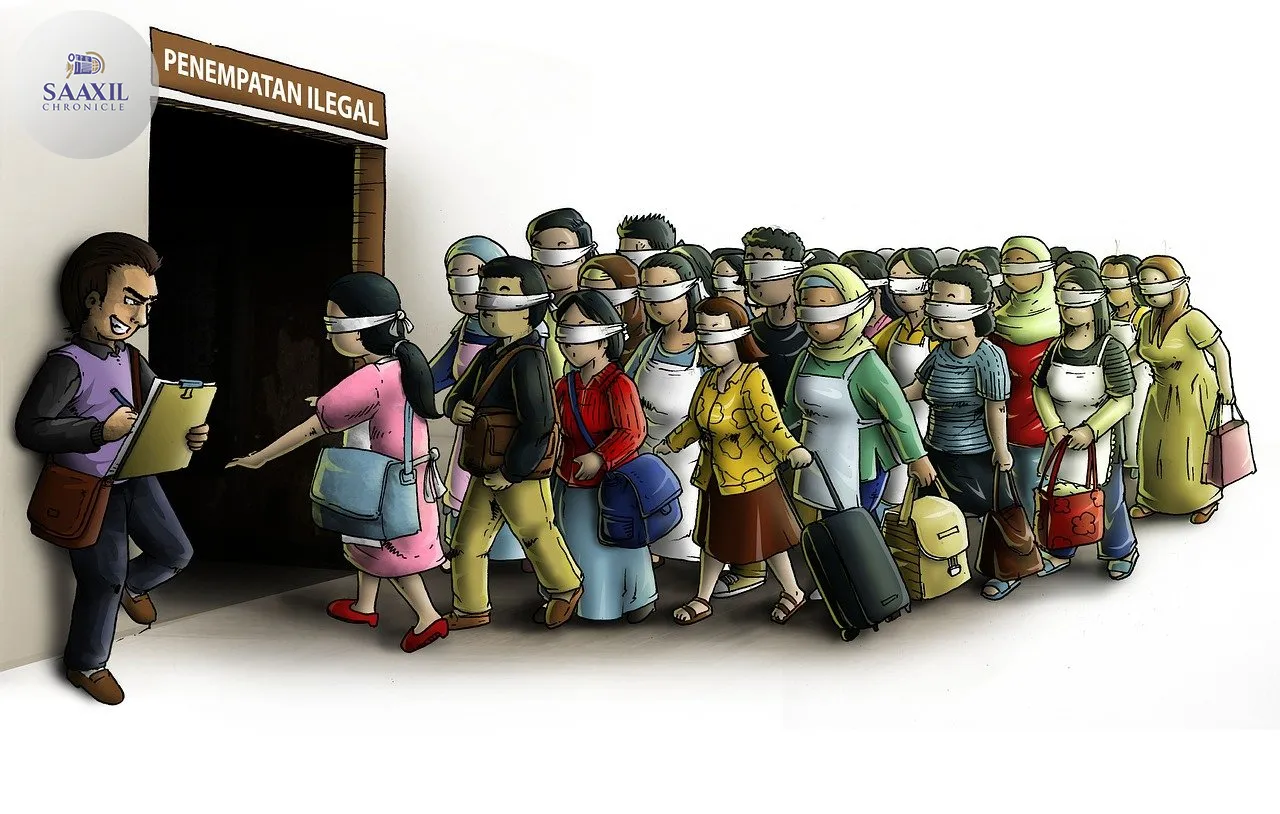The UK government is under mounting pressure as senior MPs reveal significant lapses in tracking illegal migrants working within the country. Concerns have been raised about the government’s failure to monitor individuals who have overstayed their visas or had their sponsorships revoked. This revelation poses a serious challenge to Labour’s commitment to restoring border control credibility, a key promise made by Keir Starmer’s administration.
The issue was brought to light in a recent parliamentary session where MPs criticised the government’s handling of migration data. The lack of accurate tracking systems has sparked worries about national security and economic implications, prompting calls for immediate reform.
A Growing Problem Unveiled
The situation came to a head on 4th July 2025, when MPs presented their findings in a report that has since triggered widespread debate. The report highlights the government’s inability to account for thousands of migrants who have overstayed their visas. This failure undermines efforts to maintain effective border controls and manage immigration efficiently.

The MPs’ report states that without accurate data, the government cannot make informed decisions on immigration policy. It also raises concerns about the potential exploitation of undocumented workers, who may be vulnerable to poor working conditions and unfair wages. The absence of a robust tracking system not only affects the migrants but also the UK’s labour market stability.
Implications for Labour’s Border Control Pledge
Keir Starmer’s government has pledged to tighten border controls and ensure that immigration is managed effectively. However, the recent revelations cast doubt on Labour’s ability to fulfil this promise. Critics argue that the lack of oversight could erode public trust and hinder Labour’s electoral prospects.
The government has responded by acknowledging the issue and expressing a commitment to improving the current system. However, opposition parties and advocacy groups remain sceptical, demanding concrete actions and timelines for reform. They argue that without significant changes, the government’s credibility on immigration matters will continue to dwindle.
Expert Opinions on Migration Challenges
Experts in immigration policy have weighed in on the situation, highlighting the complexities of managing migration in a globalised world. Dr. Sarah Collins, an immigration analyst, notes that while technology can aid in tracking migrants, it must be implemented with respect for privacy and human rights.
“The balance between security and individual rights is delicate,” Dr. Collins explains. “To regain control, the government must invest in technology that ensures transparency and accountability, while safeguarding the rights of all individuals.”
Economists also point out the potential economic impact of untracked migrants. A significant portion of the UK’s workforce comprises migrant labour, and without proper oversight, the economy could face disruptions. The hospitality, agriculture, and construction sectors, which rely heavily on migrant workers, could be particularly affected.
Government’s Plan for Reform
In response to the criticism, the government has outlined a preliminary plan to address the tracking issue. This includes the development of a comprehensive database to monitor visa statuses and sponsorships. The initiative aims to enhance cooperation among various governmental agencies and improve data sharing.
Home Secretary Lisa Johnson has stated, “We are committed to ensuring that our immigration system is both fair and effective. By implementing a new tracking system, we aim to uphold the integrity of our borders and protect the rights of all individuals within the UK.”
Despite these assurances, the timeline for implementing such reforms remains unclear. Advocacy groups emphasise the need for transparency in the process, urging the government to provide regular updates on progress.
Public Response and Future Implications
The public’s reaction to the MPs’ report has been mixed, with some expressing concern over potential security risks, while others focus on the humanitarian aspect. Community organisations working with migrants have called for a more compassionate approach, emphasising the need for support services and legal pathways for those seeking to regularise their status.
Looking ahead, the government faces the challenge of balancing security with compassion in its immigration policies. The upcoming months will be critical in determining whether Labour can effectively address these issues and restore public confidence in its ability to manage the UK’s borders.
As the debate continues, the government must navigate complex political and ethical considerations to ensure that its immigration policies reflect the values and priorities of the nation. The outcome will not only affect the current administration but also shape the future of immigration policy in the UK.





